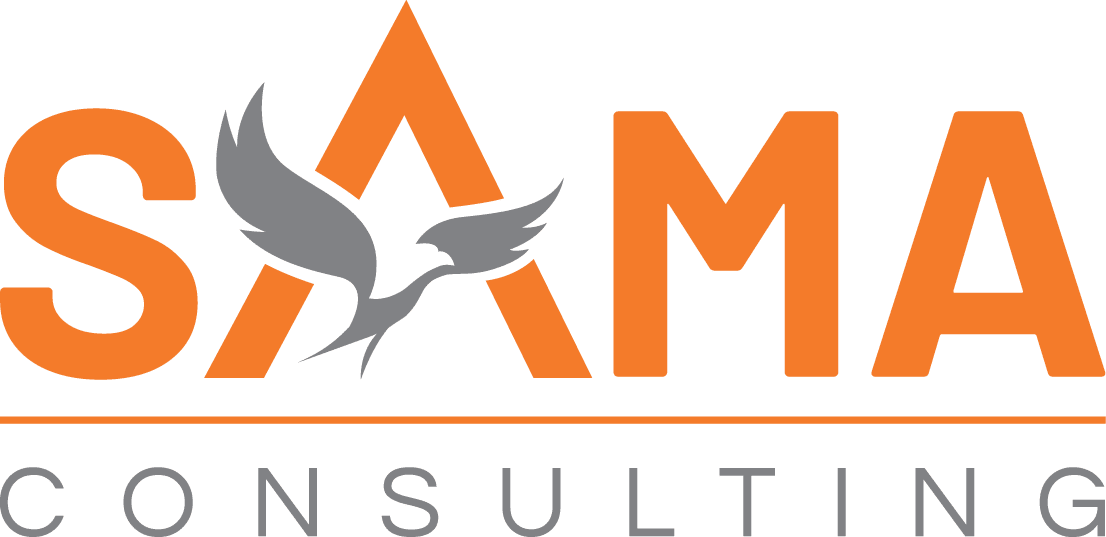
Integrating Infor CPQ with Your Existing ERP: What You Need to Know
In today’s competitive manufacturing landscape, the ability to quickly and accurately configure, price, and quote complex products can make the difference between winning and losing deals. Configure, Price, and Quote (CPQ) software has become essential for manufacturers dealing with customizable products, but it’s true power is unlocked only when seamlessly integrated with existing Enterprise Resource Planning (ERP) systems.
Infor CPQ has been recognized as a Leader in the Nucleus Technology Value Matrix for the fifth consecutive year and stands out as a premier solution for manufacturers seeking sophisticated product configuration capabilities. However, the success of any CPQ implementation depends heavily on how well it integrates with your existing business systems.
The integration between CPQ and ERP systems creates a powerful ecosystem that automates the entire quote-to-cash process, eliminates data silos, and provides real-time visibility across sales and operations. For organizations considering this integration, understanding the technical requirements, implementation strategies, and potential challenges is crucial for success.
This comprehensive guide will walk you through everything you need to know about integrating Infor CPQ with your existing ERP system, from initial planning through post-implementation optimization.
Ready to streamline your Infor CPQ integration?
Sama delivers expert Infor CPQ integrations, enhancing your ERP system for improved efficiency and business success.

Understanding Infor CPQ Integration Architecture
Core Integration Framework
Infor CPQ’s integration architecture is built around flexible APIs and standardized data exchange protocols that support connections with various ERP systems. The platform provides multiple integration methods to accommodate different technical requirements and organizational preferences.
- API-Based Integration: Modern REST APIs enable real-time data synchronization between Infor CPQ and ERP systems. This approach provides the highest level of responsiveness and data consistency.
- Middleware Integration: Utilizing platforms like Infor ION, organizations can create sophisticated integration scenarios that support complex business logic and data transformation requirements.
- File-Based Integration: For organizations with specific security requirements or legacy system constraints, batch file exchange provides a reliable alternative for data synchronization.
Data Flow Architecture
Understanding how data flows between systems is essential for planning a successful integration. The typical integration involves multiple data streams:
- Master Data Synchronization: Product information, pricing data, customer records, and vendor details must be synchronized between systems to ensure consistency.
- Transactional Data Exchange: Quote information, order details, and configuration specifications flow from CPQ to ERP, while inventory levels and production capabilities flow back to CPQ.
- Real-Time Updates: Critical information such as inventory availability, pricing changes, and production lead times require real-time synchronization to ensure quote accuracy.
Key Benefits of ERP-CPQ Integration
Streamlined Quote-to-Cash Process
CPQ integrates with your ERP system to expand both system’s capabilities. Integration will automate order entry, pass production information to the shop floor, retrieve information out of your ERP, and quickly search for stock items. This automation eliminates manual data entry errors and significantly reduces the time required to process quotes and orders.
Organizations typically experience dramatic improvements in their quote-to-cash cycle times following successful integration. The automated flow of information from initial configuration through final order fulfillment creates a seamless customer experience while reducing administrative overhead.
Enhanced Data Accuracy and Consistency
One of the most significant challenges in managing complex product portfolios is maintaining data consistency across multiple systems. Integration eliminates the need for duplicate data entry and ensures that all systems work from the same master data sets.
- Single Source of Truth: Product specifications, pricing information, and customer data are maintained in one system and automatically synchronized across the entire technology ecosystem.
- Real-Time Validation: Integration enables real-time validation of configurations against current inventory levels, production capabilities, and delivery schedules.
Improved Operational Efficiency
The automation capabilities enabled by ERP-CPQ integration extend far beyond simple data synchronization. Organizations can implement sophisticated business rules that automate routine decisions and escalate exceptions for human review.
- Automated Order Processing: Approved quotes can automatically generate sales orders in the ERP system, triggering downstream processes such as production planning and procurement.
- Dynamic Pricing: Integration with ERP pricing engines ensures that quotes reflect current costs, margins, and promotional pricing strategies.
Better Customer Experience
Integration enables sales teams to provide customers with more accurate and timely information throughout the sales process. Real-time access to inventory levels, production schedules, and delivery dates improves the quality of customer interactions.
- Accurate Lead Times: Sales representatives can provide realistic delivery commitments based on current production schedules and inventory availability.
- Transparent Pricing: Integration with ERP cost accounting systems ensures that pricing reflects current material costs and manufacturing requirements.
Ready to streamline your Infor CPQ integration?
Sama delivers expert Infor CPQ integrations, enhancing your ERP system for improved efficiency and business success.

Technical Requirements and Prerequisites
System Compatibility Assessment
Before beginning any integration project, organizations must conduct a thorough assessment of their existing technical infrastructure. This evaluation should include:
- ERP System Version and Configuration: Determine the specific version and configuration of your ERP system, including any customizations that might impact integration capabilities.
- Network Infrastructure: Assess network capacity, security protocols, and connectivity requirements for supporting real-time data exchange.
- Database Architecture: Understand the structure and accessibility of master data repositories that will need to be synchronized with Infor CPQ.
Integration Platform Requirements
The choice of integration platform significantly impacts project complexity and long-term maintainability. Organizations have several options:
- Infor ION Integration: For organizations using Infor ERP solutions, Infor ION integration provides the most seamless integration experience. Infor ION has an incredible advantage when it comes to integrating Infor CPQ and other apps to CloudSuite Distribution Enterprise.
- Third-Party Middleware: Organizations using non-Infor ERP systems may require third-party integration platforms to facilitate data exchange and process automation.
- Custom API Development: Some organizations may choose to develop custom integration solutions using Infor CPQ’s REST APIs and their ERP system’s integration capabilities.
Security and Compliance Considerations
Integration projects must address various security and compliance requirements:
- Data Encryption: All data exchange between systems should utilize industry-standard encryption protocols to protect sensitive business information.
- Access Control: Role-based access controls should be implemented to ensure that users can only access information appropriate to their responsibilities.
- Audit Trails: Comprehensive logging and audit trail capabilities are essential for maintaining compliance with industry regulations and internal governance requirements.
Ready to streamline your Infor CPQ integration?
Sama delivers expert Infor CPQ integrations, enhancing your ERP system for improved efficiency and business success.

Implementation Best Practices
Project Planning and Preparation
Successful integration projects begin with comprehensive planning that addresses both technical and organizational requirements. The planning phase should include:
- Stakeholder Alignment: Engage representatives from sales, operations, IT, and finance to ensure that integration requirements address all organizational needs.
- Process Mapping: Document current quote-to-cash processes and identify opportunities for improvement through integration.
- Data Mapping: Create detailed maps of data flows between systems, including transformation requirements and validation rules.
Working with experienced Infor CPQ consultants during the planning phase can help organizations avoid common pitfalls and identify optimization opportunities.
Phased Implementation Strategy
Complex integration projects benefit from phased implementation approaches that allow organizations to validate functionality and make adjustments before full deployment:
- Phase 1 – Master Data Synchronization: Begin with the synchronization of product catalogs, customer records, and pricing information.
- Phase 2 – Quote Integration: Implement the automated flow of quote information from CPQ to ERP systems.
- Phase 3 – Order Processing: Add automated order generation and processing capabilities.
- Phase 4 – Advanced Features: Implement sophisticated business rules, workflow automation, and analytics capabilities.
Data Migration and Validation
Data migration represents one of the most critical aspects of any integration project. Organizations must develop comprehensive strategies for:
- Data Cleansing: Identify and resolve data quality issues before migration to prevent downstream problems.
- Mapping and Transformation: Develop detailed specifications for converting data between different system formats and structures.
- Validation and Testing: Implement comprehensive testing protocols to ensure data accuracy and completeness following migration.
The data migration best practices guide provides detailed insights into developing effective migration strategies.
Testing and Quality Assurance
Comprehensive testing is essential for ensuring integration reliability and performance:
- Unit Testing: Validate individual integration components and data transformation rules.
- Integration Testing: Test end-to-end processes to ensure that data flows correctly between systems.
- Performance Testing: Validate system performance under various load conditions to ensure acceptable response times.
- User Acceptance Testing: Engage end users in testing scenarios that reflect real-world usage patterns.
Ready to streamline your Infor CPQ integration?
Sama delivers expert Infor CPQ integrations, enhancing your ERP system for improved efficiency and business success.

Integration with Specific ERP Platforms
Infor ERP Solutions
Organizations using Infor ERP solutions benefit from native integration capabilities that simplify implementation and enhance functionality:
- Infor LN Integration: The integration between Infor CPQ and Infor LN provides comprehensive manufacturing-focused capabilities, including bill-of-materials synchronization and production planning integration.
- Infor CloudSuite Integration: Infor CloudSuite consulting services can help organizations implement sophisticated cloud-based integration scenarios that leverage the full capabilities of both platforms.
- Infor ION Middleware: The Infor ION integration platform provides sophisticated middleware capabilities that enable complex business logic and process automation.
Microsoft Dynamics Integration
Infor CPQ provides specific integration guides for Microsoft Dynamics 365 for Finance and Operations, enabling organizations to implement standardized integration patterns that minimize customization requirements.
- Dynamics 365 Finance and Operations: Pre-built connectors and integration templates accelerate implementation while ensuring compatibility with Microsoft’s update cycles.
- Dynamics AX: Legacy Dynamics AX implementations can utilize custom integration approaches that leverage existing customization frameworks.
SAP Integration
SAP integration requires careful consideration of system architecture and data synchronization requirements:
- SAP S/4HANA: Modern SAP implementations can leverage REST APIs and OData services for real-time integration with Infor CPQ.
- SAP ECC: Legacy SAP ECC systems may require RFC-based integration approaches or middleware solutions for effective data exchange.
Other ERP Platforms
Infor CPQ can integrate with various ERP systems, with existing integrations available for VISUAL and Syteline (CSI), and customized integrations available upon request.
Organizations using other ERP platforms should work with experienced integration specialists to develop appropriate connectivity solutions.
Ready to streamline your Infor CPQ integration?
Sama delivers expert Infor CPQ integrations, enhancing your ERP system for improved efficiency and business success.

Common Integration Challenges and Solutions
Data Synchronization Issues
One of the most common challenges in ERP-CPQ integration involves maintaining data consistency across systems:
- Challenge: Product information updates in the ERP system may not immediately reflect in CPQ, leading to pricing or configuration errors.
- Solution: Implement real-time synchronization mechanisms or establish clear batch update schedules with appropriate validation procedures.
- Challenge: Complex product hierarchies and bill-of-materials structures may not map directly between systems.
- Solution: Develop comprehensive data mapping specifications and transformation rules that accommodate structural differences between systems.
Performance and Scalability Concerns
Integration performance can significantly impact user experience and system adoption:
- Challenge: Real-time integration queries may impact ERP system performance during peak usage periods.
- Solution: Implement caching strategies and optimize database queries to minimize performance impact on production systems.
- Challenge: Large product catalogs and complex configurations may result in slow response times.
- Solution: Design integration architecture to support parallel processing and implement appropriate indexing strategies.
User Adoption and Change Management
Technical integration success doesn’t guarantee user adoption:
- Challenge: Sales teams may resist new processes or find integrated systems more complex than standalone solutions.
- Solution: Develop comprehensive Infor CPQ training programs that focus on business benefits and provide hands-on practice with integrated workflows.
- Challenge: Different user groups may have conflicting requirements for system functionality and access.
- Solution: Implement role-based system configurations that provide appropriate functionality for different user types while maintaining data security.
Ready to streamline your Infor CPQ integration?
Sama delivers expert Infor CPQ integrations, enhancing your ERP system for improved efficiency and business success.

Measuring Integration Success
Key Performance Indicators
Organizations should establish clear metrics for evaluating integration success:
Process Efficiency Metrics:
- Quote-to-order conversion rates
- Average quote processing time
- Order accuracy rates
- Customer response times
Data Quality Metrics:
- Data synchronization accuracy
- System uptime and availability
- Error rates and resolution times
- User satisfaction scores
Business Impact Metrics:
- Revenue per quote
- Sales cycle length
- Customer retention rates
- Operational cost reduction
Ongoing Optimization
Successful integration is not a one-time event but an ongoing process of optimization and improvement:
- Performance Monitoring: Implement comprehensive monitoring systems that track integration performance and identify optimization opportunities.
- User Feedback: Establish regular feedback mechanisms to gather user input and identify areas for improvement.
- Technology Updates: Stay current with platform updates and new features that may enhance integration capabilities.
Ready to streamline your Infor CPQ integration?
Sama delivers expert Infor CPQ integrations, enhancing your ERP system for improved efficiency and business success.

Future Considerations and Trends
Artificial Intelligence Integration
The future of CPQ-ERP integration includes sophisticated AI capabilities that enhance automation and decision-making:
Predictive Analytics: AI-powered analytics can help predict customer preferences and optimize pricing strategies based on historical data patterns.
Intelligent Configuration: Machine learning algorithms can suggest optimal product configurations based on customer requirements and constraints.
Automated Decision Making: AI can automate routine decisions while escalating complex scenarios for human review.
Cloud-First Integration
The trend toward cloud-based solutions is changing how organizations approach integration:
API-First Architecture: Cloud platforms increasingly provide API-first integration capabilities that simplify connectivity and reduce custom development requirements.
Microservices Architecture: Modern cloud platforms support microservices architectures that enable more flexible and scalable integration scenarios.
Real-Time Processing: Cloud platforms provide enhanced capabilities for real-time data processing and synchronization.
Industry 4.0 Integration
The evolution toward Industry 4.0 manufacturing creates new integration opportunities:
IoT Integration: Connected manufacturing equipment can provide real-time production data that enhances CPQ lead time accuracy.
Digital Twin Technology: Digital representations of manufacturing processes can improve configuration validation and production planning.
Advanced Analytics: Sophisticated analytics platforms can provide deeper insights into customer behavior and operational performance.
Ready to streamline your Infor CPQ integration?
Sama delivers expert Infor CPQ integrations, enhancing your ERP system for improved efficiency and business success.

Conclusion
Integrating Infor CPQ with your existing ERP system represents a significant opportunity to transform your quote-to-cash processes and improve operational efficiency. However, success requires careful planning, expert implementation, and ongoing optimization efforts.
The benefits of successful integration extend far beyond simple automation. Organizations can achieve improved data accuracy, enhanced customer experiences, and significant operational efficiencies that drive competitive advantage in their markets.
Key success factors include thorough planning, phased implementation approaches, comprehensive testing, and ongoing user support. Organizations should also consider the long-term implications of their integration architecture and ensure that their chosen approach can adapt to future business requirements and technology changes.
72% of reviewers who mentioned integration features said that Infor CPQ easily integrates with CRMs, ERPs and other modules, demonstrating the platform’s proven integration capabilities.
Ready to Transform Your Quote-to-Cash Process?
If you’re ready to explore how Infor CPQ integration can transform your sales operations, contact our team of experts for a comprehensive consultation. Our experienced Infor CPQ consultants can help you assess your requirements, develop an integration strategy, and guide you through every step of the implementation process.
For organizations seeking to optimize their broader technology ecosystem, explore our comprehensive supply chain management solutions and learn how integrated platforms can transform your entire operation.
Visit our insights page for additional resources, case studies, and best practices that demonstrate the power of integrated business systems in real-world manufacturing environments.
Whether you’re in industrial manufacturing, aerospace and defense, or high-tech electronics, our industry-specific expertise can help you achieve your integration objectives and maximize your technology investments.
About the Author: This article was written by enterprise integration specialists with over 12+ years of experience implementing Infor CPQ solutions across various industries. Our team has successfully guided more than 150 organizations through their CPQ integration journeys, delivering measurable improvements in sales efficiency and customer satisfaction.
Ready to streamline your Infor CPQ integration?
Sama delivers expert Infor CPQ integrations, enhancing your ERP system for improved efficiency and business success.

